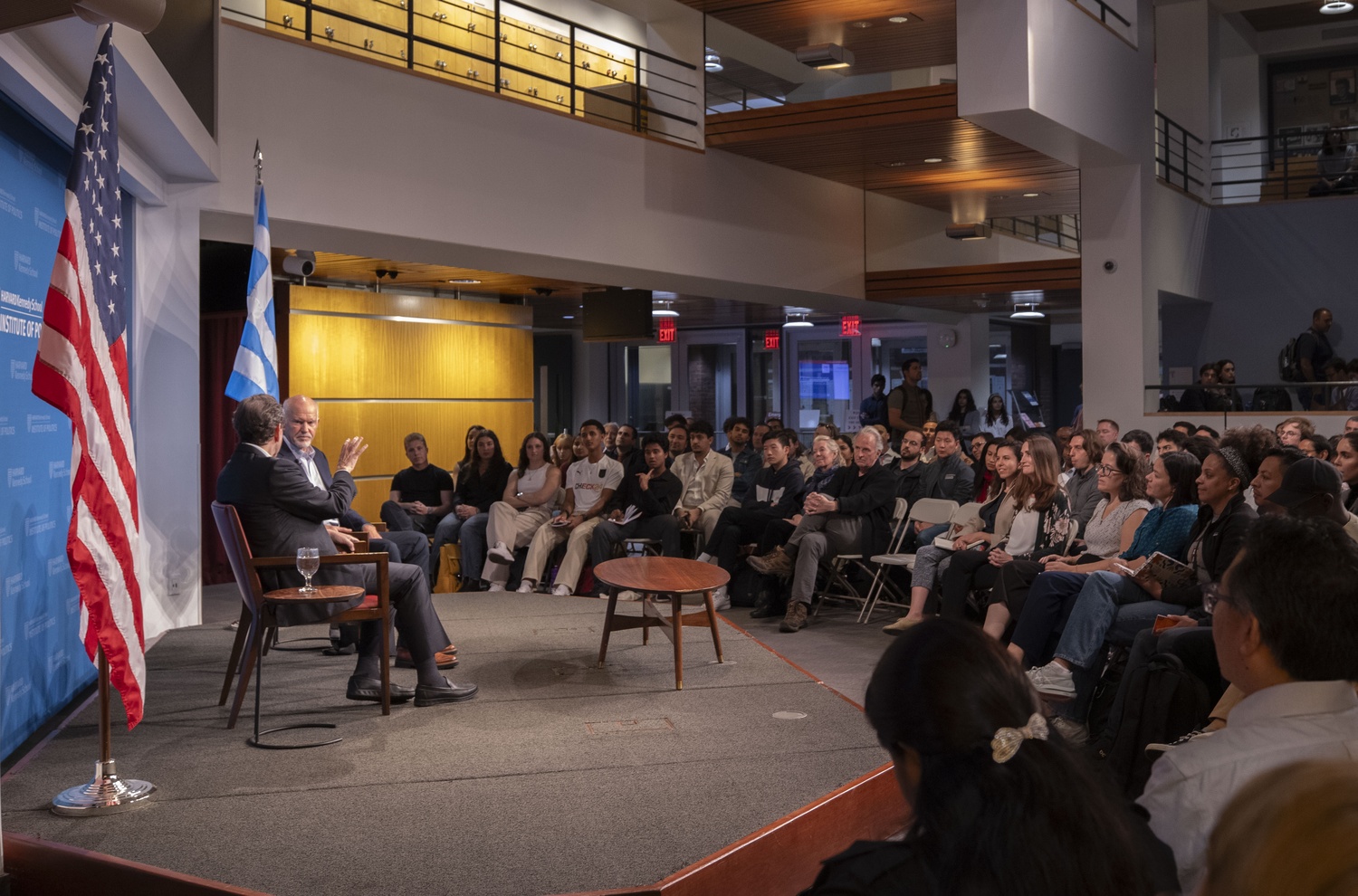
News
Harvard Grad Union Agrees To Bargain Without Ground Rules

News
Harvard Chabad Petitions to Change City Zoning Laws

News
Kestenbaum Files Opposition to Harvard’s Request for Documents

News
Harvard Agrees to a 1-Year $6 Million PILOT Agreement With the City of Cambridge

News
HUA Election Will Feature No Referenda or Survey Questions
Former Greek Prime Minister Discusses Relationship with Turkey at IOP Forum

Former Prime Minister of Greece George A. Papandreou discussed his experience attempting to bolster democracy within Greece and the importance of international cooperation with Turkey and the European Union at a Harvard Institute of Politics forum Tuesday evening.
At Tuesday’s talk — which was moderated by Ronald A. Heifetz, a Harvard Kennedy School lecturer and Papandreou’s former mentor — Papandreou underscored the challenge of establishing Greece’s role within the EU as an advocate for itself and Turkey while facing disregard by larger nations.
The forum opened with Heifetz prompting Papandreou to reflect on a conversation early in his tenure with Ismail Cem, a foreign minister of Turkey, in which the two attempted to build trust despite years of animosity.
“The issue of our conversation was to really understand the fears of the other side — put yourself in the shoes of the other side,” Papandreou said.
According to Papandreou, his amicable bond with Cem led to a trickle-down effect of collaboration. He added that after 40 years of no bilateral agreement between the countries, Greece’s trade with Turkey quickly increased from $3 million to $3 billion.
Papandreou said that as prime minister, he faced unwarranted blame from larger countries for a 2010 financial crisis, adding that other members of the EU drew from unbalanced power dynamics to make Greece a “scapegoat” in the crisis.
Papandreou also described his efforts to engage with a wide range of demographic groups among the Greek public before turning to more closed-off diplomatic discussions in order to imbue citizens with a sense of “agency.” For example, when conflict escalated between Israel and Palestine, Papandreou said he first sought out perspectives from women’s groups.
“Whenever I went to meet officially with Israeli, Palestine officials, I first would meet with the women's groups because they have the solution and they were the ones that really promoted peace,” Papandreou said. “Bringing them in felt important.”
To address the lack of citizen input in global systems of government, Papandreou proposed countries institute a “deliberative” branch of government led by “randomly” chosen citizens.
Throughout Tuesday’s talk, Papandreou said it is critical to remember and learn from historical lessons “because we don’t want to repeat them.” In particular, Papandreou said efforts to address Greece’s historical animosity toward Turkey improved the relationship between the countries, with Greece even becoming a “champion” for Turkey to join the EU.
Papandreou also said modern issues like corruption can be understood through ancient Greek concepts such as hubris.
“They didn't have all the solutions, but they asked most of the most important questions,” he said of the ancient Greeks.
During the question and answer portion of the forum, Papandreou criticized and questioned the influence of corporations in the U.S. government, pointing to the need to “disrupt the concentration of power.”
“Elon Musk — I have nothing with him, personally, but who the hell is Elon Musk to be the decision maker?” Papandreou asked. “We have to face up to our faults as a democracy.”
Want to keep up with breaking news? Subscribe to our email newsletter.
Most Read
- Harvard’s Hyperfixation on Israel Is Academically Unserious
- Harvard Police Union Overwhelmingly Votes No Confidence in HUPD Chief Clay
- Trump Administration Conditions Harvard’s Funding on Eliminating DEI, Restricting Protests
- Facing Trump’s Ultimatum, Harvard Has No Easy Choices
- House Door Boxes Elicit Backlash Over Conservative Student Publication
